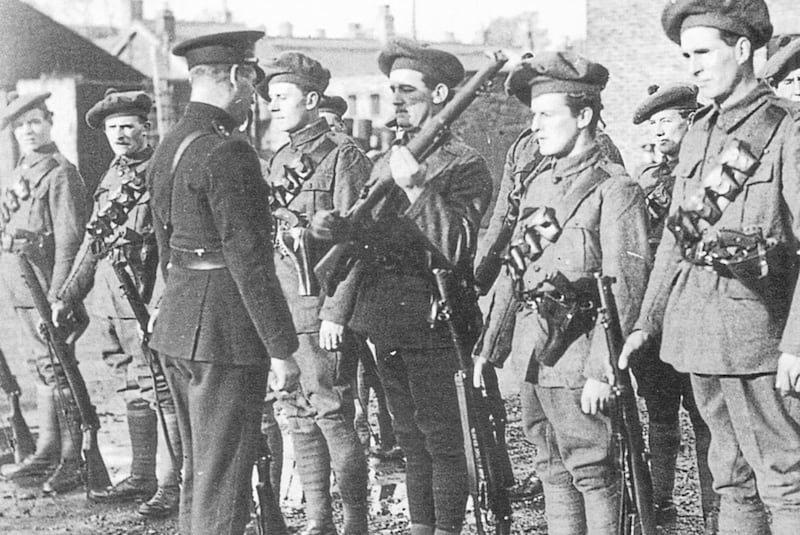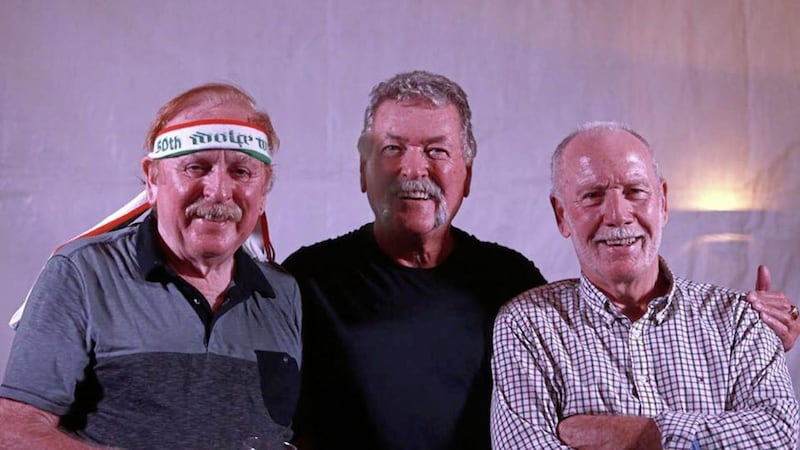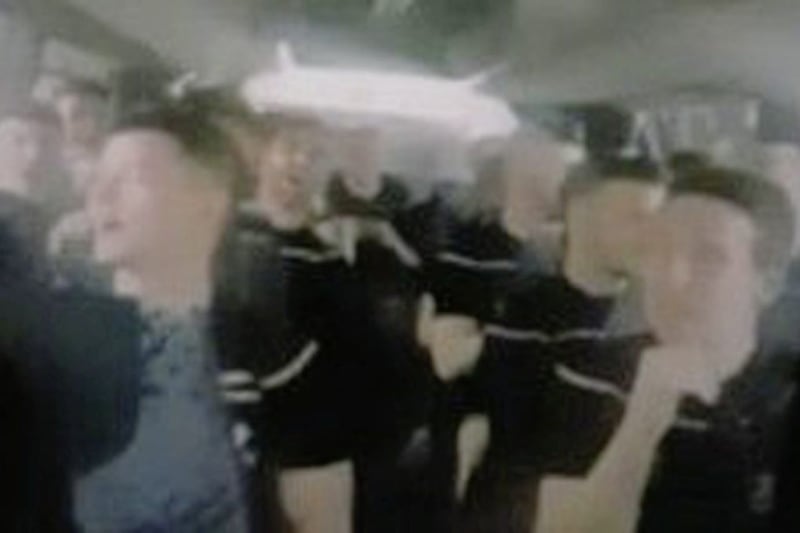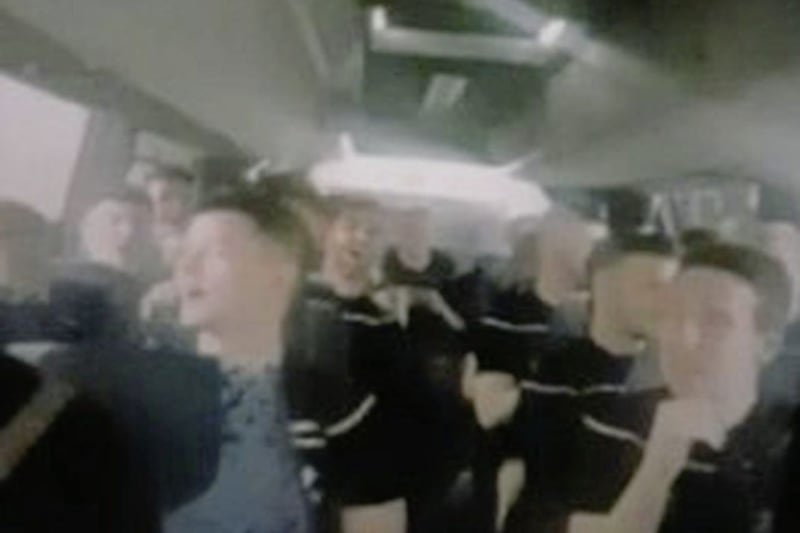A rebel song denouncing the notorious Black and Tans has topped the UK and Irish iTunes charts following the cancellation of a Royal Irish Constabulary commemoration in Dublin.
'Come out ye Black and Tans' by The Wolfe Tones was originally written by songwriter Dominic Beehan, and contains lyrics condemning the brutality of the infamous constables drafted into the RIC in 1920 during the War of Independence.
The song topped both the British and Irish iTunes charts yesterday, with both charts based on the number of downloads from Apple's music service.
Referring to the constables - whose nickname was derived from their uniform colour, and who were mostly English First World War veterans - the lyrics state: "Come out ye Black and Tans, come out and fight me like a man...Tell them how the IRA made you run like hell away."
The song's appearance pushed contemporary releases by the likes of Maroon 5 and Lewis Capaldi down the charts, and members of the Wolfe Tones attributed it's appearance to a planned commemoration in Dublin for the Royal Irish Constabulary and Dublin Metropolitan Police.
The event was due to take place in Dublin Castle on January 17 as part of the Republic's Decade of Centenaries.
Irish Justice Minister Charlie Flanagan had described the event as a "modest and solemn commemoration", but it was cancelled following criticism from the public and politicians, including Sinn Féin president Mary Lou McDonald, who described it as "crass Fine Gael revisionism gone too far".

The Black and Tans became hate figures in Ireland for their brutal tactics, including the original 'Bloody Sunday' killing of 14 people during a Gaelic football match at Dublin's Croke Park in 1920.
Earlier this week, members of Dublin City Council voted to boycott the commemoration, prompting Mr Flanagan to cancel it.
The minister said: "I do not believe that the event, as planned, can now take place in an atmosphere that meets the goals and guiding principles of the overall commemorative programme."
Taoiseach Leo Varadkar said the event had become "very divisive", but said he hoped it could take place at a later date.
When the commemoration was announced, a Wolfe Tones spokesperson used the band's official Twitter account to condemn it, stating the Black and Tans "murdered and terrorised our country 100 years ago".
Following the cancellation and news of their song's iTunes charting, the spokesperson tweeted: "Fine Gael got their answer."








